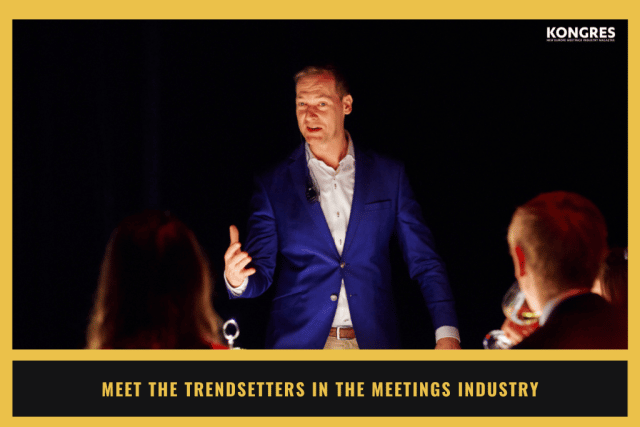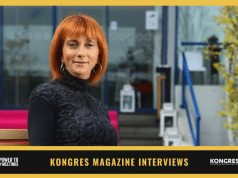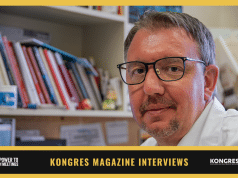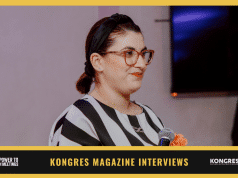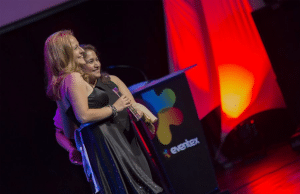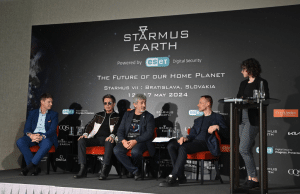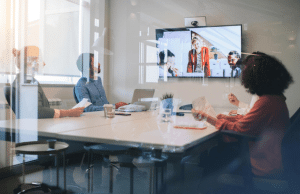The ninth selection of influencers by Kongres Magazine concluded with the award ceremony hosted in Cankarjev dom. The selected influencers are pioneers in their respective fields and help co-create the regional meetings industry. Kongres Magazine’s selection is, in a way, an overview of who is who in the industry.
Q1: In times of crisis, we tend to draw parallels with the past. What have we learned so far to make our industry better and more responsible to attendees and the environment in the future?
The question is: do we need a crisis to realise how we can do a better job for the environment? I think the pandemic or other worldwide impacts in the past two years has shaken up the hospitality sector like never before, and very comfortable business models have been destroyed or heavily damaged. In these moments, we must showcase leadership, which protects your loyal and hard-working employees who have always trusted you in busy periods. Now they need to count on you to take the risk and the financial responsibility to look into the future. The question of what we have learned is to protect our most valuable asset, our workforce. It took years to train them and integrate them into the company philosophy, so let’s not destroy this. The commitment towards your brand will glue this team together stronger than before.
The thinking process of the environment needs to come naturally with responsibility and self-interest in how we can do a better job. I think it’s fake if companies are waking up now to becoming greener just because it is in the news. Responsible thinking must be a natural identification of our resources and should challenge you every day to make your job better. Don’t follow as everyone else does, but rather take new directions and invest in new sustainable ideas, which not only help your company become greener but make your community and your employees proud to give something back.
Q2: What should we stop doing in regard to in-person events? Vice versa, what element should we not abandon at all costs?
The industry of in-person events is huge and every sector is connected with subcontractors who base their business model on live events. So, what would be wrong to stop any kind of in-person event? Furthermore, people connect live events with the same emotion as a private holiday. The feeling of travelling, the emotion of discovering new locations, and further connecting with people with a personal touchpoint are more valuable than any online session. However, this industry must learn how to put a greener footprint into the market. That comprises travelling, accommodation, as well as exhibitors and attendees. The solution shall come from those who establish the events.
We are living in a world which is becoming more and more impersonal through social media or the general flood of news. We have drifted away from appreciating moments, which have a meaning and message between people exchanging content with each other. So, what we should never do is stop meeting each other and enjoy a personal get-together where we connect through emotional touchpoints.

Q3: What is your take on the various event types, some invented during the corona crisis (live, digital, hybrid, metaverse)? How will we transition in the future?
The corona crisis was an engine to advance what would have come anyway, just faster. I think some of these tools are very useful and avoid unnecessary meetings, create time savings and allow participants to join important events without investing too much money and keeping a greener footprint. Still, it is in the nature of human beings to meet and come together. If we compare the travel industry or the exhibition sector now and prior pandemic, it clearly shows people want to meet and travel. The transition will mean that technology will become more reliable and that our hassle with actual electronic issues will be solved better so that participating in live, digital and other events is more enjoyable, easier to attend and better to facilitate. In some years, we will be able to walk in 3D goggles through an exhibition or participate in the same way in an event. So, technology will continue to grow and rise fast and open to immersive industry technology. At the end of the day, we will see a massive new industry sector growing here, and the result will be that we will find more participants for the same event, but the in-person happening will be kept stable and consistent as well. I think it will be a win-win situation as we don’t destroy live or in-person events, but we create additional demand for others.
Q4: How do different event types address the topical problem of human interaction, which is at the core of our industry and a basis for learning?
The caterer and designer play a tremendous role to set the right atmosphere. Ideas shall come from our side towards the end client, combining solutions with practical and doable operations from the supplier’s side. A new approach is required in some areas taking networking/learning events into a modern and future scenario. I am taking examples from day-to-day life. To illustrate, we are so used to going to a coffee shop for our daily morning routine, and we feel perfectly comfortable and satisfied with it. Can we implement the same setting during a networking event and create a real and truly authentic coffee shop atmosphere with a real vitrine and goodies, a barista doing the famous heart shape foamy cappuccino? We should create an emotional connection with this product, and people will interact positively with your services. My motivation is to learn what makes people happy in their daily life and bring this joy into the event scenario.
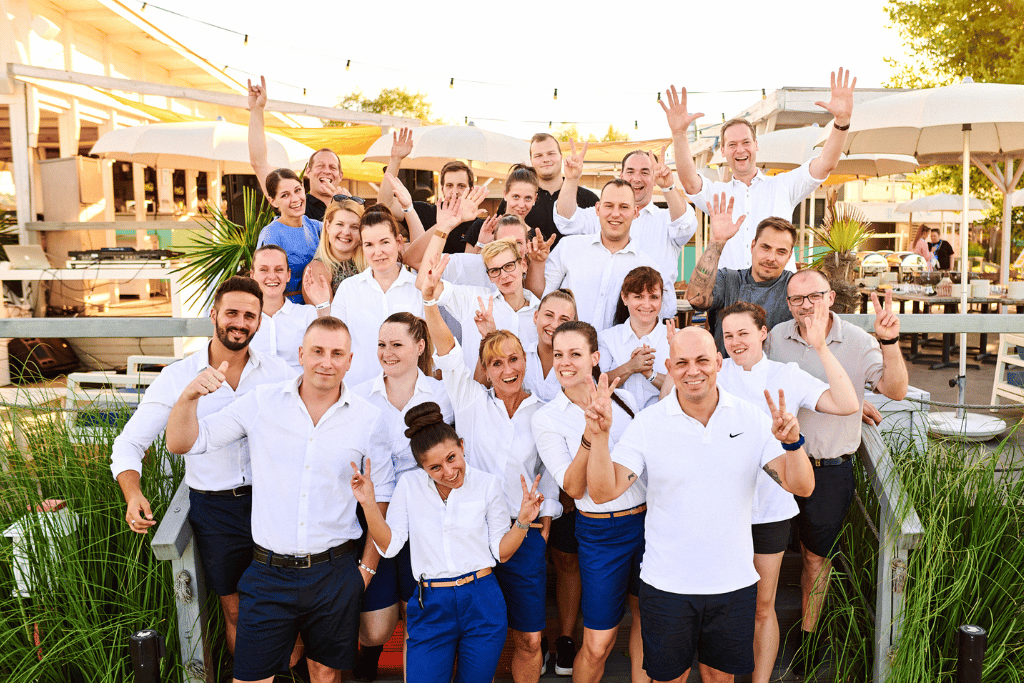
Q5: What are your priorities to reach the goal of creating a carbon-neutral meetings industry? How environmentally aware is your organisation? How do your clients see sustainability? Can you illustrate with case studies?
The transition to carbon neutrality requires large investments and a long-lasting procedure, which we all must take. Nevertheless, small steps, as explained above, already make a slight difference. We have been working already prior to the global hype with a more careful approach. Specific cases are installations of solar panels, which is, for us, one of the highest criteria as it makes us independent, and further, we don’t waste energy from unclarified sources. To produce carbon neutral is one of the greenest footprints you can do in the catering industry.
Since the establishment of our brand, we have not used any plastic material; however, this has something to do with our catering style. Straws have been always paper, for example, and now thanks to Conventa, we have found a wonderful supplier producing straws from biological ingredients, which are even consumable. Trash selection is another sensitive and important aspect of the catering industry. Alongside our carbon-neutral production, we certainly have a lot of waste, comprising not only food but containers, delivery boxes, and packing material too. With our suppliers for main food, we agreed to invest in hygienic food boxes, which will be exchanged at every delivery to us and exclude any paper or plastic packaging from the supplier.
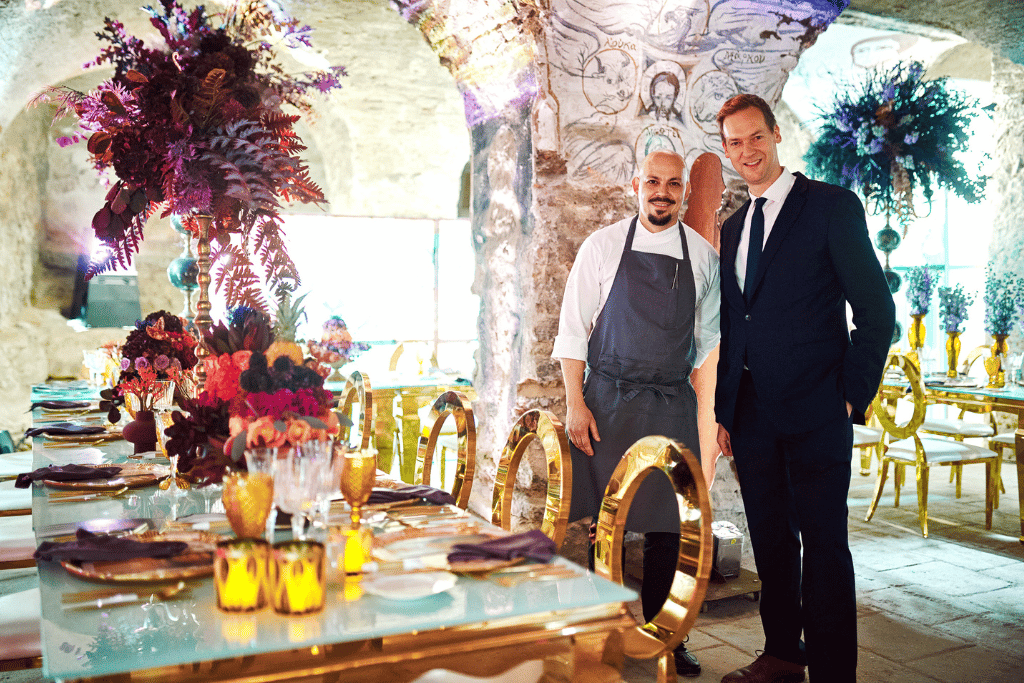
Q6: How do you imagine an ideal meetings industry? What should be its core value?
From two sides, we must be open to making investments to go greener. As we all know, it doesn’t work to force this topic. Rather, it requires creative motivational ideas that everyone wants to be part of it.
Since we are all creative mindsets, it is in our hands to come up with a stable and green initiative, which is transparently shared with clients and buyers. Involving, teaching, and learning will be the ideal scenario to make steps hand in hand together with clients and suppliers. This way takes a long time, but every year, new tools and techniques are available to make serious steps towards a higher core value.
Q7: What is your advice for younger colleagues starting their careers in the meetings industry?
Be bold, believe in yourself and align investors or coworkers who trust your idea. The young generation has magical ideas, and whenever we visit international fairs, it surprises me from the bottom of my heart what cheerful ideas we find, especially from young entrepreneurs. These ideas are sometimes more valuable and nail actual problems totally on the point compared to large corporations who throw another product or service on the market – an example of greenwashing. I stand behind young and creative mindsets, and my first sentence above is the approach which guided me too.
Q8: Who do you believe deserves the title of the TOP influencer if you had to select them from the list of finalists?
I cannot judge as we don’t have the same case study as Conventa. It would be unfair to judge companies I haven’t even met before. Large organisations could invest in extremely important green initiatives as they would probably have the budget for it, and still, it has been amazing teamwork. Small companies try to be as creative as possible to come up with the ultimate idea – that is as valuable as big organisations. I think we are all winners as the Conventa initiative gives us an important spotlight and makes clients and suppliers aware of the future. In addition, everyone feels motivated to be part of it and wants to join the team of winners with new initiatives. So, the real winner is Conventa itself.
Learn more about Terra Catering and the company’s sustainable endeavours here.


